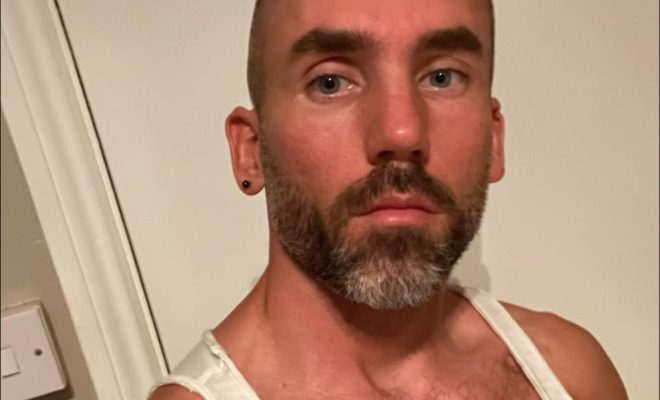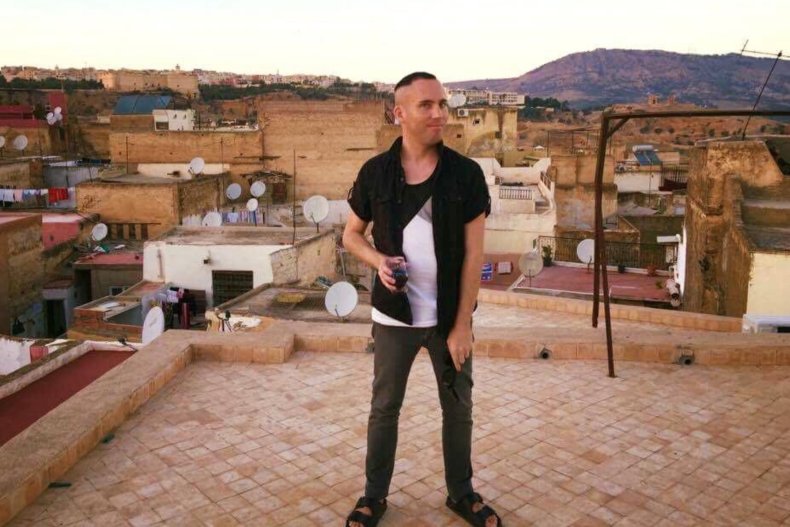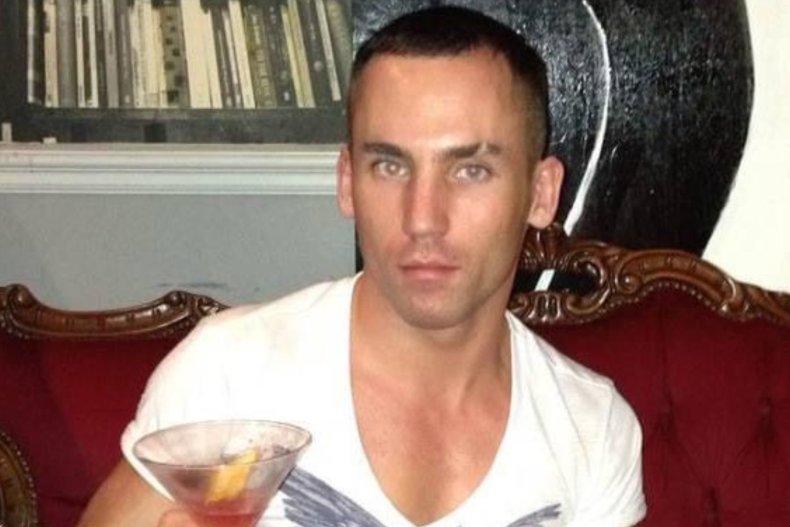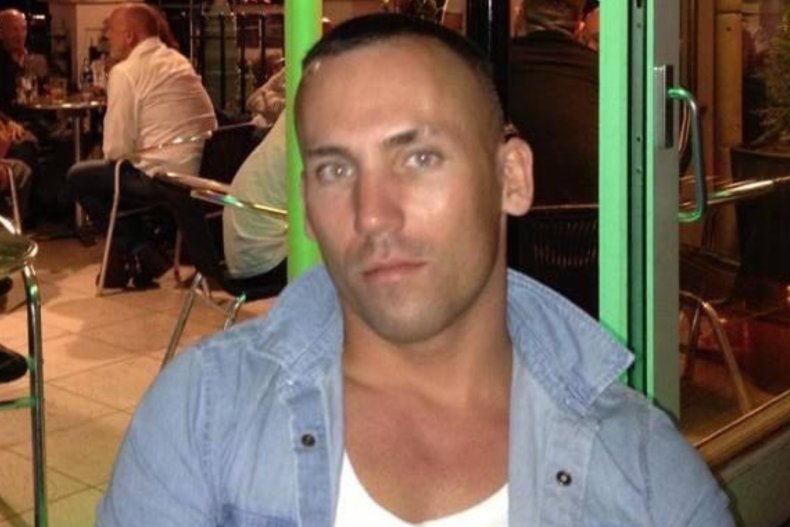
‘I Was Assaulted, The Trauma Led Me to Alcohol Addiction’
By SAM THOMAS-First published in Newsweek on 12/21/22
Many of us have been in a relationship with someone who has had a profound impact on us as individuals, often in ways that we could never have expected. What I’ve found is that if there is unresolved trauma as a result of those impactful relationships, it can manifest in a variety of forms.
As a teenager and in my early 20s I had always been the “boring one.” I often faded into the background on nights out with friends. In retrospect, I wasn’t fully exploring all the shenanigans I should have been getting up to in my late teens and early twenties, until my mid-twenties onwards. So, when I began drinking at the age of 23, I felt I was making up for “lost time.”
Around the same time, I started going to the gym. It was only then that I began to attract other men and I started going on dates. I was living in Brighton, which is considered by some as “gay Hollywood” in the U.K, everybody knows everybody.
I began speaking with one guy online who I’d never seen around locally. Eventually, we decided to take things further and go on a night out together. Then, in 2015, I ended up being the victim of a serious sexual assault. It had a devastating impact on me and changed my life forever.
Struggling to cope after the assault
In the period following the assault, I found that I was really struggling to cope. For instance, three weeks after the assault, I had gone on vacation to a gay men’s resort in Gran Canaria. I was in a jacuzzi, on my own, when a German couple followed me in and I felt one of them touching my inner thigh.
“Get the f*** off me!” I yelled and immediately jumped out. He was undeterred and asked: “Do you want me to come to your apartment?”, which really freaked me out. There weren’t enough expletives in the English dictionary that described my anger at his perverse intrusion. While it may seem like a fleeting incident, it felt as traumatic as the original sexual assault.
I also found myself drinking more than usual and eventually stopped going to the gym altogether. As a teenager I had experienced bulimia and struggled to get help, which led to me founding my own eating disorder charity, but soon after my assault, I effectively swapped my eating disorder for alcohol. I didn’t realize that I was, in fact, an alcoholic until I found myself enduring several major episodes of severe alcohol withdrawal when I tried to quit.

When I began drinking at 23, I was only drinking two or three glasses of wine on weekends. After my assault, that increased to two or three bottles of wine a night. No one ever knows when they’ve crossed that invisible line into alcohol dependency. But I suspect it would’ve been at some point after the attack.
For a long time, I couldn’t work out why I felt so physically and mentally unwell—including experiencing hallucinations—simply from stopping my alcohol intake.
My physical symptoms were intermittent and typically included sweats, shakes and fever. After my third visit to the emergency room, I was finally diagnosed by a doctor as alcohol dependent.
I self-referred to a residential detox programme for ten days. During my admission, it had occurred to me that I was never in denial about my drinking. Instead, I was in denial about the catalyst that had propelled my drinking to a tipping point. Over the years, I’d experienced many traumas, including abuse when I was a child and homphobic bullying at school—the attack was my tipping point.
One day, I remember coming down to the communal area of the detox center dressed in shorts and a vest. “You’ve got a lovely body,” said one of the female residents. It was meant as a genuine compliment, but it made me feel uncomfortable and embarrassed.
I had not exercised for over a year and I realized that I had made a subconscious decision to stop. I thought that being “gym fit” had somehow attracted unwanted attention and led to me being sexually assaulted.
Detoxing from alcohol addiction

Although I was discharged from the residential detox in a state of sobriety, after ten days, I began to drink alcohol again. The horrific events of my assault were still with me, and I think it was an attempt to anesthetize my pain and distress. I would detox again, but the intrusive thoughts, flashbacks and triggering memories flooded back to the surface every time and would lead to another relapse.
Over several years, I went through a number of psychiatric hospital admissions, suicide attempts and countless visits to the emergency room, I finally detoxed for the fourth and final time in November 2019. Although they were not successful, I don’t see any of the detoxes I had as “wasted”, as they helped me to prepare for a life of sobriety when I was ready.
What helped me maintain my sobriety was signing up to trauma therapy with staff who specialised in working with men who were survivors of sexual assault. In the sessions with my therapist, I realized I had “demasculinized” myself since I stopped working out. I’d essentially stripped myself of my armor and identity.

After work with my therapist, I realized that being fit doesn’t equate to being “sexually up for it.” While some men and women will work out hard to feel more sexually attractive, that was never my goal and even it if was, that is never an invitation to be sexually assaulted. For me, going to the gym was more for my sanity than my vanity.
By exploring all of this, I realized I had a tainted view of myself. Getting older— and hopefully wiser—I concluded that I needed to get back to the gym and begin to develop a positive relationship with myself. My daily gym visits became an anchor for my recovery and it gave a structure to my days that meant I also ate and slept properly too.
One of the biggest steps was putting myself back out there, like registering on dating sites such as Grindr. Going on dates was something I’d considered and put off or canceled many times out of fear.
When I plucked up the courage to start dating again, I found myself feeling worthless and inferior. From being confident online to my confidence being diminished in real encounters was a sign I was still healing.
After a while, I began to get my confidence back, although it happened slowly. After being diagnosed with complex-post-traumatic stress disorder (PTSD), I began to learn ways to manage my triggers better. Having a structure is integral to my recovery, as is going to the gym most days. Writing about my experiences has also helped me join up the dots and make sense of what I’ve endured.
Ironically, I speak very openly about my recovery from alcohol addiction and eating disorders but not my experiences of sexual assault. Yet, I know there are many men out there affected who are in the same boat. I have decided that the ultimate closure and justice is winning at my recovery and finally being free in my own skin to date again, live again and rediscover myself.
If I’ve learned anything from being in recovery, it’s that any mental illness thrives in isolation, as does trauma, which is why I’m opening up about my own experiences. Now, over three years free from alcohol addiction, my recovery is the ultimate form of self-love.
Sam Thomas is an award winning writer, campaigner and public speaker, from Brighton, England. His first memoir “Smashed Not wasted” is out with Guts Publishing in April 2023. You can follow his Twitter page at @sam_thomas86.
All views expressed in this article are the author’s own.
If you have thoughts of suicide, confidential help is available for free at the National Suicide Prevention Lifeline. Call 1-800-273-8255. The line is available 24 hours every day.

